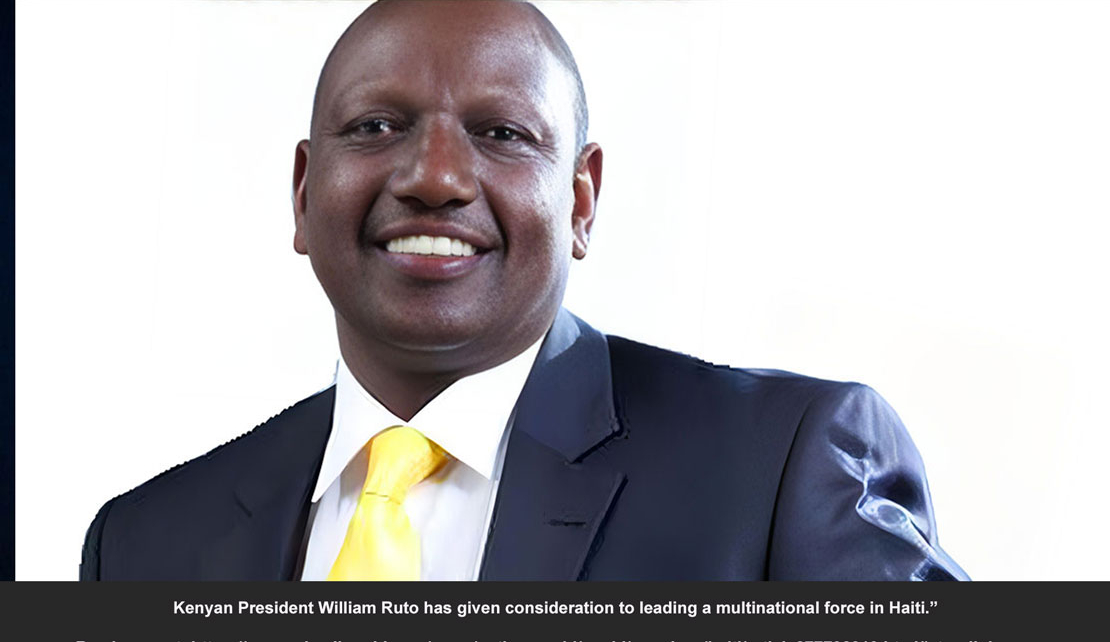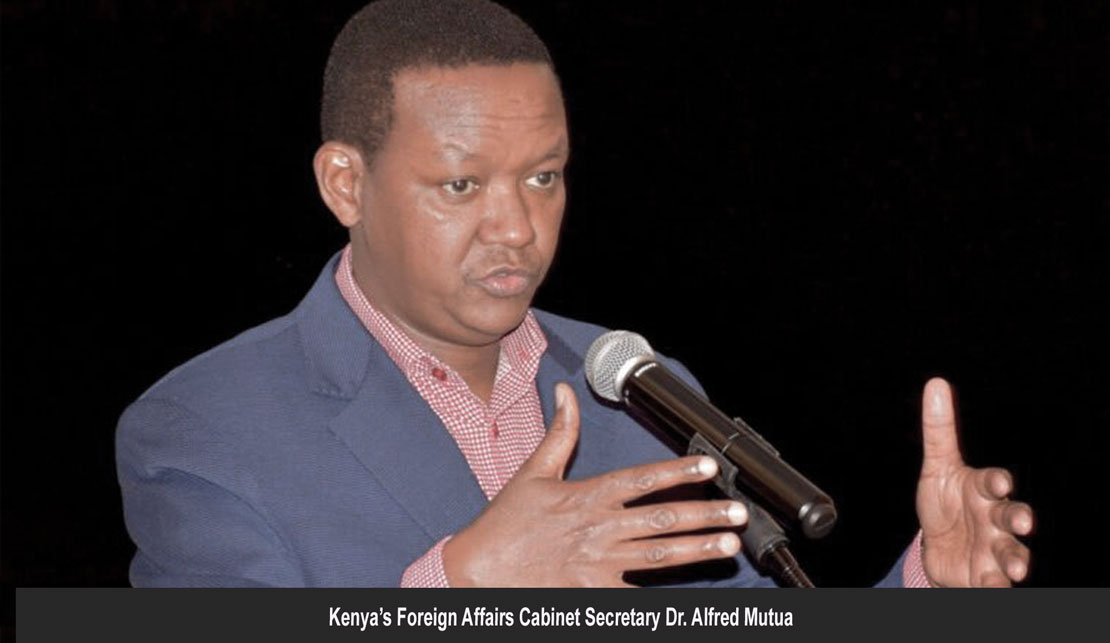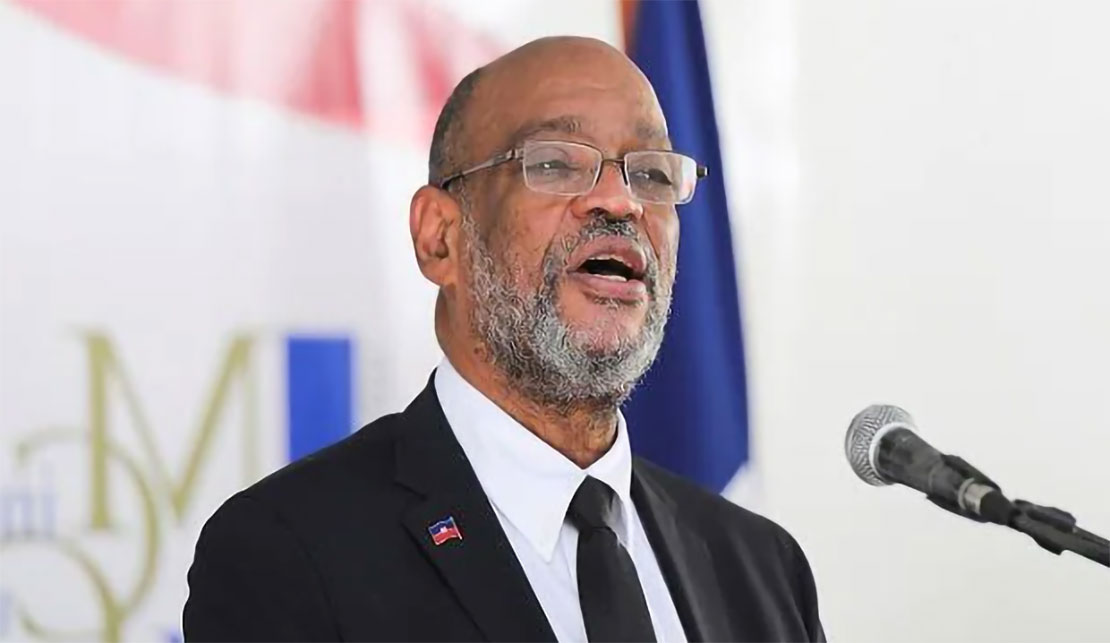HAITI | Kenya Offers 1,000 Police Officers To Help Restore Normalcy In Haiti

PORT-AU-PRINCE, Haiti, July 31, 2023 - Haitian Foreign Minister Jean Victor Généus has welcomed ”with great interest” Kenya’s offer to lead a multinational force to restore order in that troubled Caribbean country.
Foreign Minister Généus said he appreciated the expression of African solidarity, following Saturday’s announcement by Kenya’s Cabinet Secretary Dr. Alfred Mutua, committing to deploying a contingent of 1,000 police officers to help train and assist Haitian police to restore normalcy in the country and protect strategic installations.

The Haitian nation which is a member state of the Caribbean Community CARICOM, is suffering from a surge in gang violence and is in a deep security, political and humanitarian crisis.
“Kenya stands with persons of African descent across the world, including those in the Caribbean, and aligns with the African Union’s diaspora policy and our own commitment to Pan Africanism, and in this case to “reclaiming of the Atlantic crossing,” said Dr. Mutua.
“Kenya’s proposed deployment will crystalize once a mandate from the UN Security Council is obtained and other Kenyan constitutional processes are undertaken.”
Muta noted that an Assessment Mission by a Task Force of the Kenya Police is scheduled within the next few weeks, which will inform and guide the mandate and operational requirements of the Mission.
Dr Mutua also reiterated Kenya’s commitment to standing together with other African countries to help them achieve peace and stability including Sudan, Eastern DRC and Niger.

According to a report from Jackie Charles in the Miami Herald, “Haiti is now seeing a deadly and worrying resurgence that on Thursday prompted the U.S. Department of State to order the evacuation of all non-emergency personnel at its U.S. Embassy in Port-au-Prince, and U.S. citizens in Haiti.
Earlier in the week, dozens of Haitian families had sought refuge in front of the embassy after armed gang members invaded their nearby neighborhood in Tabarre. The crowd was forced off the embassy’s compound by Haitian police, using tear gas. Outside of the capital, another gang also attacked the population and set fire to an independent police station.”
While Haiti’s beleaguered police force has managed to make inroads against gangs, they’ve struggled to maintain control of areas once they move in. The force also numbers roughly 3,500 on security duty on any one day throughout the country.
Last year, as a non-permanent member of the U.N. Security Council, which maintains international peace and security, Kenya was vocal about the deteriorating security and humanitarian situation in Haiti. While calling for “practical proposals,” the country’s representative also pushed for African nations to play more of a leading role in helping a strife-torn Haiti tackle stem the violence, leading to it emerging as a threat to regional peace and security.
The United Nations Security Council has given Secretary-General António Guterres until August 15 to report back on options to improve the security situation in Haiti, including a possible U.N. peacekeeping force and a non-U.N. multinational force.
Guterres has called for “a robust” force to be sent to Haiti, where armed gangs now control at least 80% of the capital and and are behind an escalation in killings, kidnappings, rape of women and girls, looting, and the forced the displacement of tens of thousands of Haitians.
Haitian Prime Minister Ariel Henry, who met with Kenya’s president in Paris last month to discuss support for the Haitian police, first requested help from the international community in October, asking that “a specialized force” be deployed to help his struggling police force. The request was supported by Guterres and the United States, which has a resolution before the Security Council for such a deployment.

In that regard, they noted the need for the immediate creation of a Humanitarian and Security Stabilization Corridor under the mandate of a United Nations Security Council (UNSC) Resolution, and agreed to seek support from international partners to help finance its establishment and the strengthening of security in Haiti.
The CARICOM Heads are of the view that approaches should be made to Rwanda, Kenya and other willing international partners to support the strengthening of the Haitian National Police (HNP) and the establishment of the corridor.
Several Caribbean countries like Jamaica, and some police-contributing African nations to the United Nations, Rwanda, in particular, have offered to field a force, should someone else take the lead. The next steps will depend both on Kenya’s assessment and whether the Security Council takes its offer.
A confidential document circulating among some U.N. member countries, and obtained by the Miami Herald, spells out much of what is needed in a deployment and makes a strong argument for military, and not just policing, capabilities given the Haitian terrain and expanding prowess of the heavily armed gangs.
Prime Minister Henry is also engaging in discussions with members of his government over what kind of force should be deployed, and what its mandate should be: secure strategic assets like roads and the fuel port, or go after the gangs.
